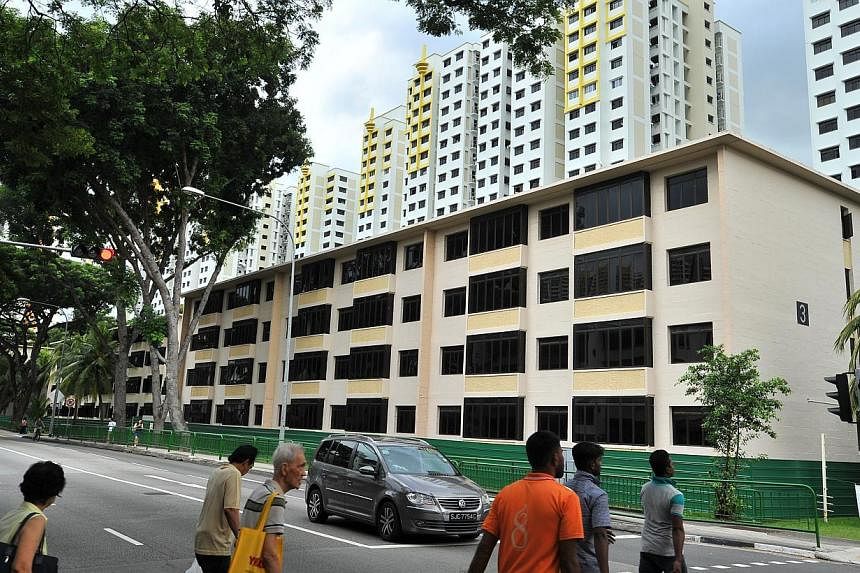SINGAPORE - Five old housing blocks in Tiong Bahru are being given a new lease of life, even though they were earmarked for demolition almost 20 years ago.
From next year, Blocks 1, 3, 5, 7 and 9 on Tiong Bahru Road will be rented to couples waiting for their new flats, under the Parenthood Provisional Housing Scheme.
These blocks were built by the now-defunct Singapore Improvement Trust (SIT).
They were selected for the Housing Development Board's (HDB) Selective En bloc Redevelopment Scheme in 1995, but have been spared the wrecking balls, and are currently being retrofitted.
Here are five things to know about the SIT and the flats that it built:
1. The SIT saved the day, back in the day

The SIT was set up in July 1927, under the Singapore Improvement Ordinance, to solve the serious housing shortage then faced by a rapidly growing population.
Many of the 23,000 flats it built were in areas such as Tiong Bahru and Old Airport Road.
The SIT was dissolved in 1959, and its successor, the HDB, took over in February 1960.
2. Flats were designed with the weather in mind

SIT architects were conscious of the fact that Singapore was close to the equator, with warm temperatures and high humidity.
Hence, SIT flats were built for tropical living, frequently featuring high ceilings, large windows and open, cantilevered balconies. Each flat had two to six rooms.
Land scarcity was also less of a concern back then, so these walk-up blocks tend to be under 10 storeys high, without any lifts.
3. Block designs borrow from the then-aesthetics du jour

Block facades and staircases often bear the distinctive curved forms of the Art Deco movement, which were popular during the 1920s and 1930s.
Some blocks also take on the Modernist tendencies of the Bauhaus era, as well as the International Style of highrise flats in a post-Modern vein.
4. Look lower and you might still spot some SIT blocks

There are currently 138 SIT blocks left standing in Singapore.
They range from two to seven storeys, and are located in Bukit Merah, Queenstown, Geylang and Kallang Whampoa.
About 35 per cent of them, or 48 blocks, are pending redevelopment. The rest are either being conserved, or there are no plans for them.
5. These blocks are old, but certainly not useless

Blocks 1, 3, 5, 7 and 9 Tiong Bahru Road are not the only SIT blocks currently put to interim use.
Three of them, Blocks 2, 3 and 7 on Short Street and Prinsep Street, are leased to educational institutions as student hostels.
Source: Straits Times archives, HDB


